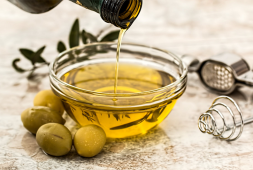
If you have a penchant for snacking, know that you’re certainly not alone. A 2022 survey conducted by Food Insight revealed that a whopping 73 percent of us admit to snacking at least once a day.
It makes one wonder if there are individuals out there who abstain from snacks altogether. On average, an estimated 24 percent of adults’ daily caloric intake is consumed during these snacking escapades, according to the United States Department of Agriculture (USDA).
But here’s the good news: between-meal nibbling might have some benefits for your health, provided you make wise choices regarding the types of foods you indulge in. This revelation comes from a recent study presented at Nutrition 2023, the annual flagship meeting of the American Society for Nutrition.
A postdoctoral fellow at King’s College London, Kate Bermingham, PhD, said in a press release, “Our study showed that the quality of snacking is more important than the quantity or frequency of snacking, thus choosing high quality snacks over highly processed snacks is likely beneficial. Timing is also important, with late-night snacking being unfavorable for health.”
Risk of Heart Disease and Metabolic Syndrome Has Increased Risk from High Triglycerides
To delve into the health implications of snacking, the research team employed data from 1,001 participants in the United Kingdom who were enrolled in the ZOE PREDICT project. This project compromises a collection of extensive nutritional research studies designed to shed light on why individuals react differently to the same foods.
The participants were aged between 34 and 58, with an average age of 46. The average body mass index (BMI) among them was 25.6, and an overwhelming 73 percent were female. Nearly every participant, 95 percent to be exact, identified themselves as regular snackers, partaking in an average of slightly over two snacks daily.
The research team meticulously analyzed the dietary patterns of the participants over two to four days, classifying snacks based on their nutritional quality. High-quality snacks included items such as nuts, seeds, or fruits, while highly processed fare like candy or cookies were deemed lower quality. The researchers also scrutinized the timing of participants’ snacking habits, classifying foods consumed after 9 p.m. as late-night snacks.
In the subsequent phase of their analysis, the researchers evaluated indicators of cardiometabolic health, including weight, blood glucose levels, insulin levels, and triglycerides, to determine how they correlated with snack quantity, quality, and timing.
Elevated triglyceride levels can contribute to metabolic syndrome, a condition that affects approximately one in four adults, according to the National Heart, Lung, and Blood Institute. Triglycerides are a type of fat in the blood, originating from foods like butter, oils, and other fats, and they can also result from excess calories that the body doesn’t immediately utilize.
You Can Improve Health Measures by Eating Healthy Snacks and Avoiding Late Night Snacking
The key findings from the analysis were as follows:
- Individuals who opted from high-quality snacks were more likely to exhibit healthier triglyceride and blood sugar levels in comparison to those who consumed highly processed snacks
- Late-evening snacking, which extends the eating window and shortens the overnight fasting period, was linked to less favorable blood glucose and lipid levels.
- Notably, the amount of snacking – number of calories consumed – and how many snacks a person ate daily didn’t seem to hurt one’s health as much as the snack quality does.
As per Erin Rossi, RD, a registered dietitian with Cleveland Clinic’s Center for Human Nutrition in Ohio who was not involved in the research, “These findings make sense: Any time high quality food is consumed, there is a benefit. This could be increased fiber or protein to help with feelings of fullness, or fruits and vegetables to help stay hydrated.”
Why the Struggle is Real with Late Night Snacking
People tend to crave highly processed foods or those that lack a number of nutrients required to stay healthy as the day goes on, explains Rossi.
“This is especially true if there are missed meals earlier in the day. Your body is still hungry and, in the evenings, those cravings tend to lean towards carbohydrate-heavy choices to help catch up,” she says.
For Rossie, her advice on how to curb all those late-night snacking urges is as follows, “First and foremost, I encourage night-time snackers to look at their day leading up to the evening. Did they skip any meals? Eat a lighter dinner than normal? Sometimes, nighttime snacking is a result of undereating during the day. The best way to avoid over snacking is to portion the food out ahead of time and give yourself a time-related boundary.”
Moreover, Rossi also suggests that individuals shouldn’t eat anything within at least two hours before bed.
Advice on Snacking Smartly by an Expert
To promote healthier snacking, Rossi also advises her clients to “plan, plan, plan!” She shares, “I always encourage my patients to think about the day ahead and put a couple snacks readily available in the refrigerator or in their bag for later.”
In addition, she also recommends that snacks should be pre-portioned to avoid overindulging. “I encourage everyone to avoid eating directly from the container food comes in, and instead, use plates or reusable containers or baggies. This helps with portion control and can cut down on mindless eating,” she says.
Rossi also says that snacking can be a good thing since it can help people manage their hunger throughout the day.
“I always encourage anyone who is truly hungry to have something small to help get to the next mealtime,” she adds.
Focus on High-Quality Snacks
One way to practice high-quality snacking is by including produce and protein with snacks, says Rossi.
She says, “Protein helps with fullness and can help clients get to the next meal without feeling overly hungry and in turn, overeating. Produce helps with the crunch factor and can provide needed fluid and fiber, which is satisfying.”
Rossi also shares that other foods, such as fruit and cottage cheese, raw vegetables with hummus, or even mini-vegetarian cheese boards that include cheese, nuts, and fruits are examples of great snacks.
If You Don’t Snack, Should You Start?
If you aren’t already a snacker, should you begin? Rossi says no.
“No need to change anything just for the sake of adding in snacks. I encourage everyone to listen to their body. If you are hungry, have something small and protein-dense. If not, enjoy other activities that bring joy. There should be no guilt associated with whether a person snacks between meals,” she says.



